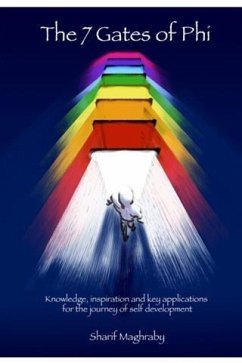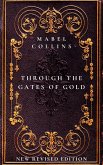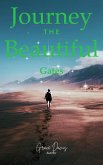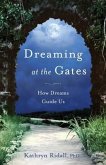I feel that we live at a time where this curiosity has generally been lost - or replaced by something that is fleeting.
But I feel that unless you are aware and make a conscious choice to learn about such 'self-development' skills as active listening, or how to project confidence, or the subtle cues of social intelligence - it is very possible that you could find yourself in a situation where such skills would have benefited you and the world would have reacted in a much more interesting and dynamic way.
This knowledge is not new - but the way that the knowledge is summarized, structured and also personalized ... is what is innovative about this book. Most people do not want to read a 300-page book about one subject and we live in a world where being concise, simple and to the point - is a very effective strategy. I have many others to thank for their contribution to this body of knowledge.
My personal vision for the 7 Gates of Phi extends farther than this book - and this is only the first step.
Each module begins with a 'personal' portrait from the author's life. So the personal story takes place in the countries where I have lived - Egypt, Kuwait, Canada, etc. But this is a small part of the book - the rest of it is based on research and history and so does not have a specific time or place. So you can say this book takes place in the reader's life - as they begin to apply the principles in it. It is a book that inspires change.
As mentioned the personal portraits section are related to certain experiences in the author's life - the main character is the reader.
This book will appeal to many readers in many countries - because it has a very simple structure that makes it easy for readers to find and apply knowledge quickly. It contains a synthesis or summary of key concepts and also contains real exercises that readers can do. It also uses the 'personal portraits' section in each module to weave the relevant experience of the author into the story and thus works effectively to personalize the book.
It is very relevant for us today because - only by changing ourselves [Be the change] can we see positive change outside of ourselves. So the first thing we can do is to educate ourselves about the experiences of others and to also learn to apply ourselves to our purpose. We live in a time when it is easy to get lost in the superficial and fleeting experiences of the digital world. I think we need to go back to the basics again. How do we stay motivated? And how do we gain self-confidence? And how do we nurture our relationships? And how do we manage our fear? And how do we achieve balance?
These are a few of the questions that the book tackles.
Dieser Download kann aus rechtlichen Gründen nur mit Rechnungsadresse in A, B, BG, CY, CZ, D, DK, EW, E, FIN, F, GR, HR, H, IRL, I, LT, L, LR, M, NL, PL, P, R, S, SLO, SK ausgeliefert werden.









